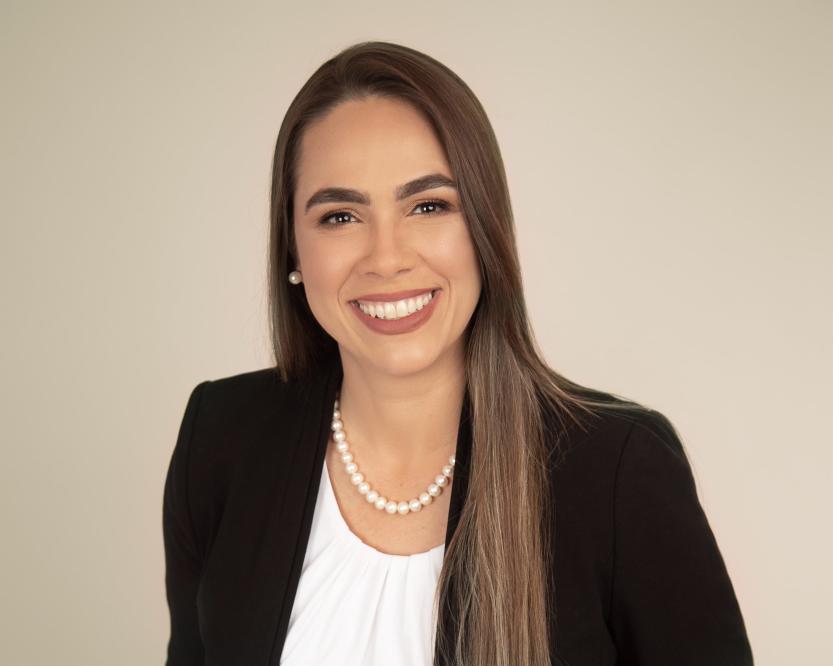Carla Prado, Ph.D., R.D., of the University of Alberta will speak March 3 on “Body Composition in Aging: More than Meets the Eye” in a talk for researchers and the public.
Her talk, at 5 p.m. EST via Zoom, is part of the Institute for Successful Longevity’s Speaker Series and is co-sponsored by FSU’s Pepper Institute on Aging and Public Policy. The public is invited. To register for the Zoom webinar, please click here: https://fsu.zoom.us/webinar/register/WN_Y9G6oRBbQESmN1cxvTZx3w.
In her talk, Prado will address the assessment of body composition in older adults, particularly focusing on low muscle mass, and sarcopenia in research and clinical settings. We will additionally discuss the health consequences of these conditions to the aging population, and the role of nutrition interventions in optimizing body composition.
“We all know, more or less, what happens to our bodies as we age,” Prado told the Institute for Successful Longevity, but, she said, not all changes are obvious. “In my talk, I’m going to focus on the loss of muscle that can occur,” she said. “It can be a hidden condition. Having low muscle mass can also be present in people who have normal body weight or are overweight or obese.”
Prado has considerable expertise on the issue of body composition. At the University of Alberta, Prado is Professor and Campus Alberta Innovate Program chair in Nutrition, Food and Health. She is also Director of the Human Nutrition Research Unit, the best facility in Canada, and is one of the top researchers worldwide for body composition and energy metabolism assessments. Prado is an expert in assessing nutritional status through the precise measurement of body composition and energy metabolism, and she will explain how this works in her March 3 talk.
Prado is concerned that many older adults are unaware of the problem of loss of muscle mass. “Nowadays, many of our older adults, they have a larger body weight,” she said. “So, people don’t usually think that they may have little muscle because their body weight is so large.” Research shows, however, that often their muscle mass has diminished with age. “For some proportion of people, they gain fat, but they don’t gain muscle,” she said. “That’s what I’m going to talk about.”
The hidden loss of muscle mass can occur in older adults at any body weight and any body size, Prado said. “We may see people who have weight stability, so their weight doesn’t fluctuate, but they may be shifting their body composition environment,” Prado said. “They may be losing muscle and gaining fat. And someone in that situation is really unaware of all these changes taking place.”
In her talk, Prado will address sophisticated ways of looking for these abnormalities in body composition but also practical ways in which people can identify low muscle mass.
Prado said many individuals are unaware of the many and important roles muscles play in the body and in maintaining good health. “The reason I focus on muscles, with or without high fat, is because muscle is such an important organ in our body,” she said. “It’s important for movement and balance, it’s important for posture, but it also has a lot of metabolic functions. It’s a reservoir of amino acids, which are the building blocks of protein, and that helps with our immune system. It’s also important for cross talk among organs.”
The benefits of adequate muscle mass are broad, Prado said. “Muscle is very important,” she said. “The more muscle we have, the better health we have. And, muscle not only helps us have better physical function, helps us move around. Muscle also is an independent predictor of survival. People who have more muscle live longer.”
Prado said people with good muscle mass who are hospitalized will likely leave the hospital faster. If they need surgery, they will likely have fewer surgical complications.
To explain how this critical component of healthy body can be easily overlooked, Prado and her center have created a video that illustrates the hidden nature of muscle mass. You can watch the video here: https://www.youtube.com/watch?v=pDSX_jaDCDM.
In addition to being Director of the Human Nutrition Research Unit at the University of Alberta, Prado is an Editorial Board member of Clinical Nutrition, the Journal of Cachexia, Sarcopenia and Muscle, and Current Opinion in Clinical Nutrition and Metabolic Care.
Prado is a past recipient of Canada’s Top 40 Under 40, an award that celebrates exceptional young Canadian leaders of all sectors, and she was recently inducted into the Royal Society of Canada, the highest academic honor in her country.














